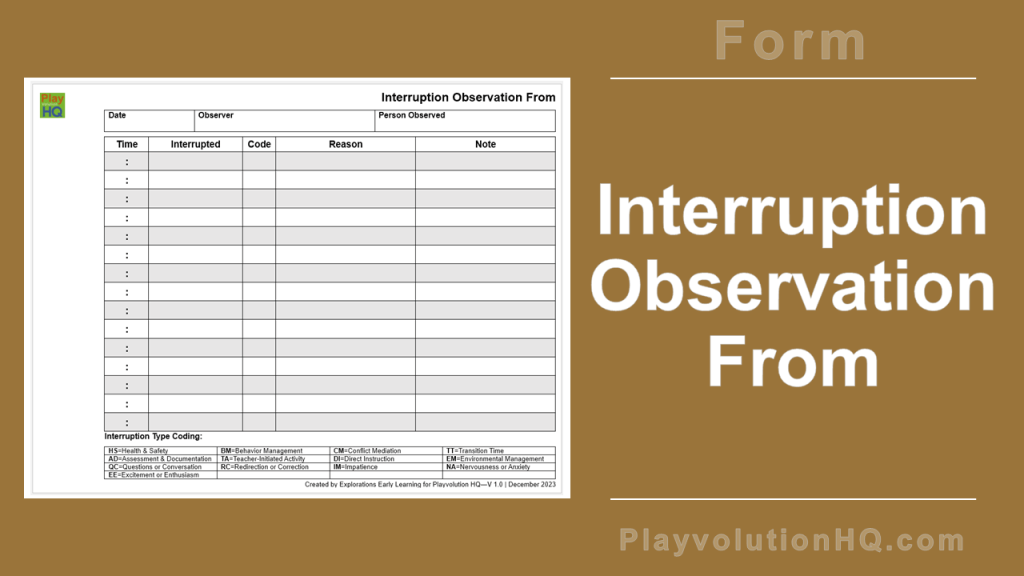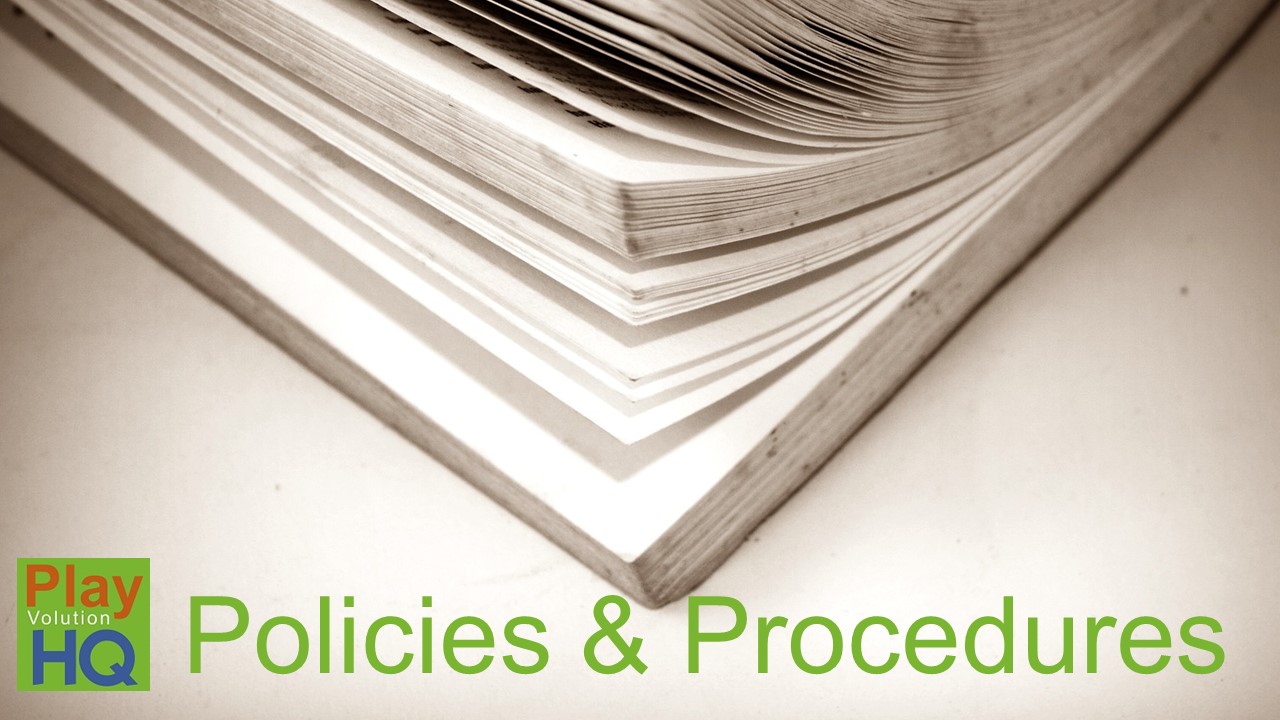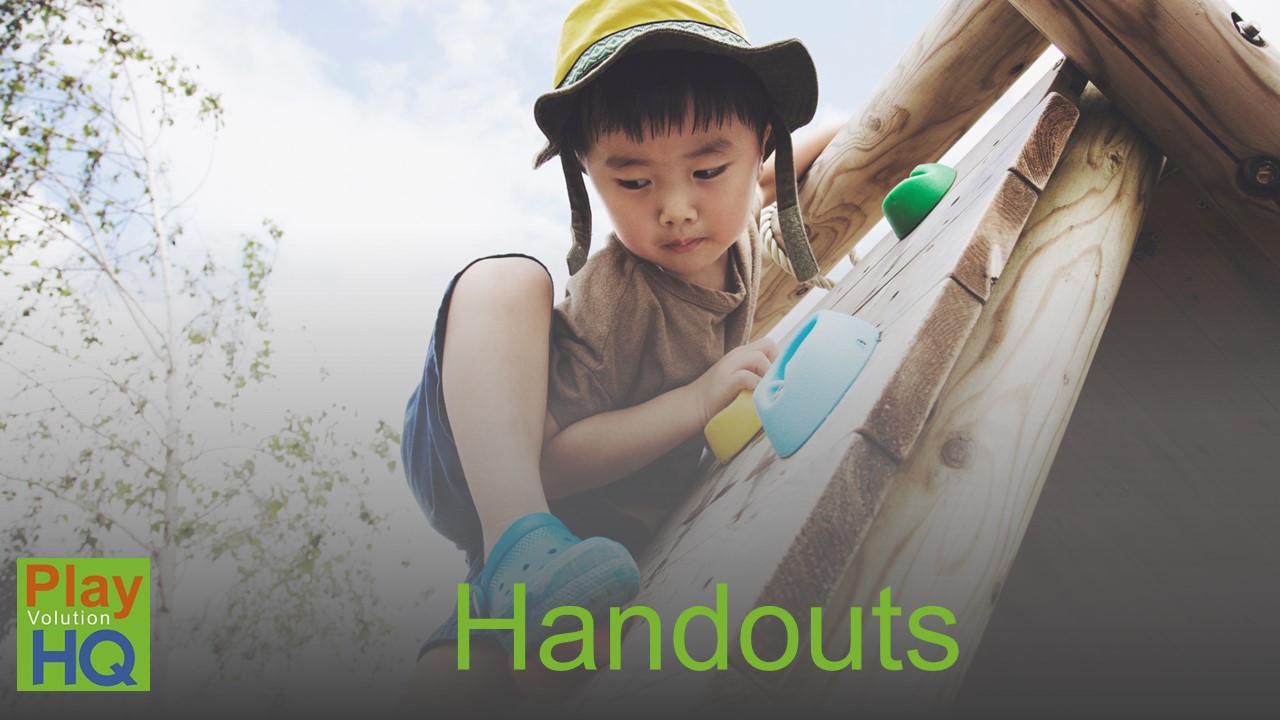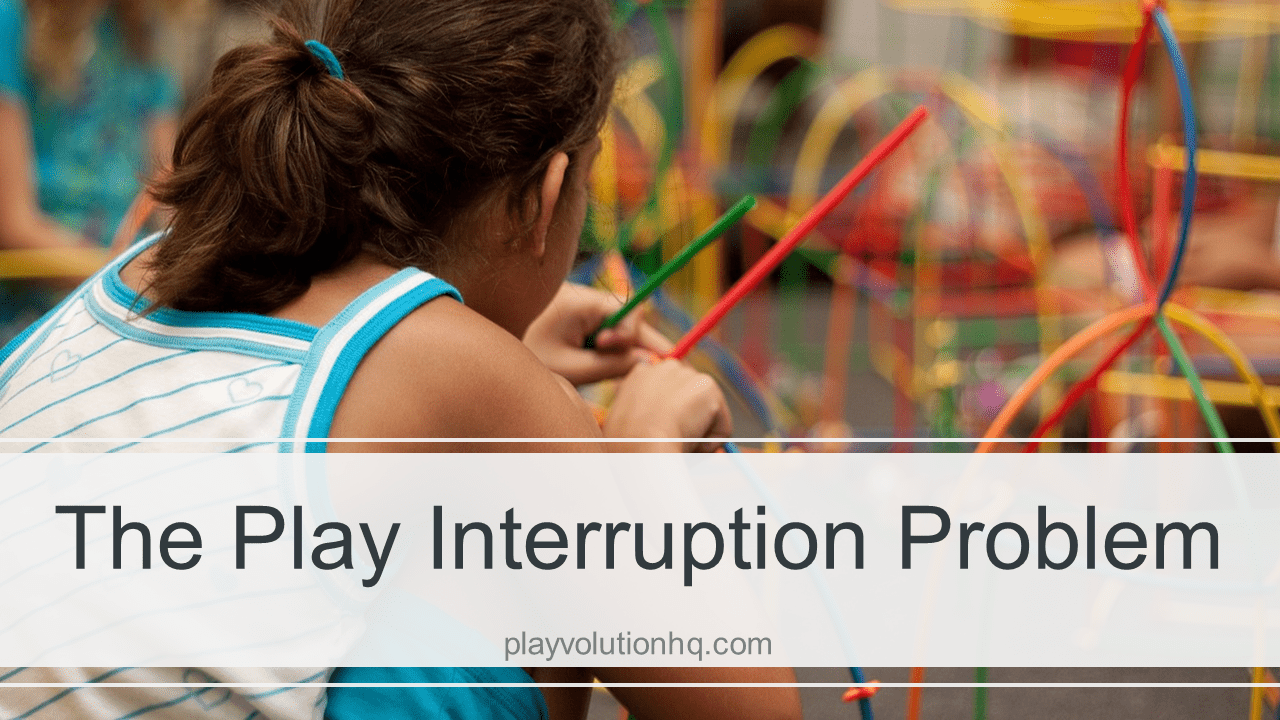Revised | Originally Published: January 15, 2024 @ 9:52 am

Table of Contents
This interruption observation form is intended for use by early learning professionals who want to gauge how often they interrupt children.
A solid foundation of research and anecdotal evidence indicates that young children learn best through self-directed play and exploration, which requires long blocks of uninterrupted time. Caregivers interested in creating such environments may want to examine, from time to time, how often they interrupt play and for what reasons.
Programs can make this form available for both peer-to-peer observation and self-observation. Examining the collected data may spark reflection and refinement of classroom practice.
Completing The Interruption Observation From
Here’s a quick look at how to use this interruption observation form:
Top Matter
Complete the top matter before starting the observation:
- Date–Date of the observation
- Observer–Name of the observer
- Person Observed–Name of the person observed
Columns
For each observation, you’ll record the following:
- Time–Time of observation
- Interrupted–Who was interrupted
- Code–Enter the code that best categorizes the observed interruption (see codes below)
- Reason–Specific reason for the interruption
- Note–Any related comments

Coding Options
There are codes for 13 categories of interruptions and spots where form-users can add 3 codes of their own. Below, you’ll find an explanation of each code and an example of an interruption that would fit that category.
- HS=Health & Safety–Interruption to address health or safety concern (Caleb, go wipe your nose and wash your hands)
- BM=Behavior Management–Interruption to address a perceived behavior problem (Stopping Leila from hitting Trever with a shovel)
- CM=Conflict Mediation–Interruption to mediate a conflict between children (Cecilia, you can’t just take the green shovel away from Max. Who had it first?)
- TT= Transition Time–Interruption to initiate a transition to another activity (OK, friends, it’s time to clean up so we can go to lunch.)
- AD=Assessment & Documentation–Interruption related to assessment or documentation (Snapping close-up pictures of kids as they roll balls up a ramp.)
- TA=Teacher-Initiated Activity–Interruption to initiate a teacher-directed activity (Circle time!)
- DI=Direct Instruction–Interruption to provide direct instruction (Let me show you how to draw a star, Silas.)
- EM=Environmental Management–Interruption related to the management of the physical environment (Stepping through children’s activity to tidy up the dramatic play area)
- QC=Questions or Conversation–Interruption to ask questions or initiate conversation (Thalia, that’s an interesting painting; can you tell me about it?)
- RC=Redirection or Correction–Interruption to redirect or correct a child (Inside voices, Penelope.)
- IM=Impatience–Interruption due to adult impatience (Stop fiddling with those blocks and get in line, Daphne.)
- NA=Nervousness or Anxiety–Interruption due to adult nervousness or anxiety (Jaxon, you’re climbing too high.)
- EE=Excitement or Enthusiasm–Interruption due to adult excitement or enthusiasm (You’ve all been playing so nicely. I’m so proud of you!)
Free PDF
Here’s the blank PDF for your downloading and printing pleasure:
Related Posts
Here are a couple of additional posts about play interruption:
More posts related to early learning program operations at the links:


Contribute content to Playvolution HQ
Brought to you by Explorations Early Learning
Post Author
Jeff Johnson is an early learning trainer, podcaster, and author who founded Explorations Early Learning, Playvolution HQ, and Play Haven.



Leave a Reply